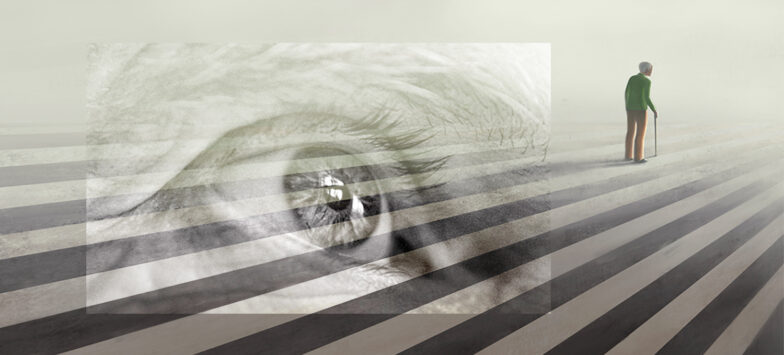
The Depression / Vision Connection — A Double-edged Sword for the Eyes
The problem of depression and its health consequences has always been with us, reportedly even more so due to the ongoing effects of the COVID-19 pandemic. Depression is an insidious enemy that attacks our physical health and well-being, and our eyes are no exception. Studies suggest that vision problems may both cause and be caused by depression, so it’s important to understand more about the impact of this double-edged sword.
How depression can AFFECT eyesight
Depression is a recognized health issue that can diminish the immune system and organs in the body – including your eyes. Though it may not lead to acute eye disease, depression is a destructive force that can impact eye function and cause visual disturbances.
Research has shown that people who were more depressed often had trouble seeing black or white and instead saw things as gray. If you’re overly stressed you may be prone to migraines, which often come with blurred vision. A depressed person who spends a lot of time in darkened environments or with closed eyes may become more sensitive to light. Watery eyes, painful eyestrain, and seeing more eye “floaters” can also accompany depression.
How living with low vision can CAUSE depression
Though low vision is frequently a problem among seniors, it can affect people at any age. It can be caused by eye diseases, such as age-related macular degeneration (AMD), diabetic retinopathy or glaucoma. Low vision interferes with a person’s ability to perform everyday tasks and cannot be corrected with glasses, contact lenses, medicine or surgery.
Those with low vision may have trouble performing daily tasks such as grocery shopping, reading or watching TV, causing a sense of restricted lifestyle and loss of independence that is hard to accept and often leads to depression.
Preventing a downward spiral
It’s essential to seek treatment to help prevent the worsening physical and emotional toll of depression. Unfortunately, many people forego treatment because they believe depression shows personal failure or believe it may be an expected part of aging.
If you suspect you or a loved one with vision problems may be depressed, please reach out to your Atlantic Eye ophthalmologist for guidance. Shining a light on the depression /vision connection can help disarm this powerful enemy and give your sense of well-being – and your eyes – a fighting chance.
If you or a loved one is dealing with Feelings of isolation and depression that frequently accompany vision loss, the American Academy of Ophthalmology suggests:
Try going online. As the internet has become more and more accessible to individuals with low vision or vision loss, social networks present a good option for maintaining social ties and/or establishing new connections with others to help relieve the isolation of impaired vision.
